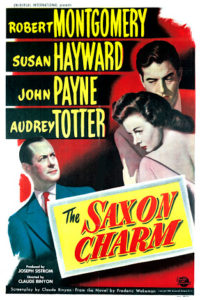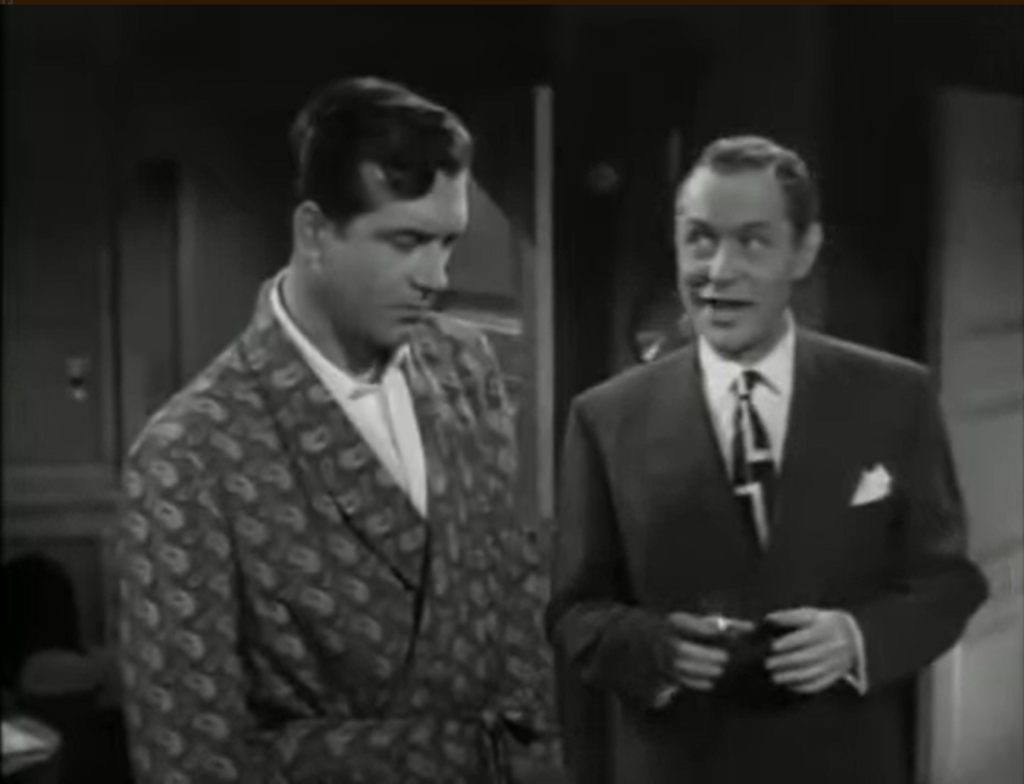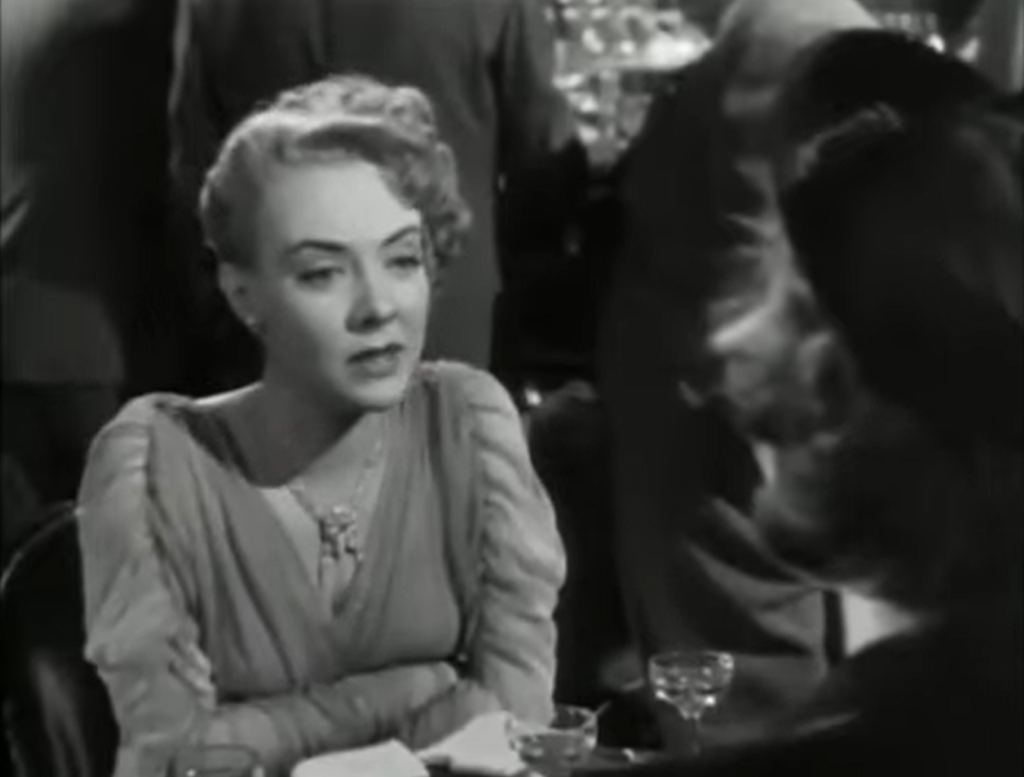“The Saxon charm is always turned on full the next day.”
|

Synopsis:
A best-selling novelist (John Payne) eager to have his first play produced by a notoriously self-absorbed theatrical guru (Robert Montgomery) ignores misgivings from both his wife (Susan Hayward) and Montgomery’s loyal girlfriend (Audrey Totter), and finds himself struggling to maintain artistic autonomy over his own work.
|
|
Genres, Themes, Actors, and Directors:
- Audrey Totter Films
- Has-Beens
- John Payne Films
- Robert Montgomery Films
- Susan Hayward Films
- Writers
Review:
It’s difficult to find much to appreciate in this tale of a narcissistic theatrical producer whose “charm” lies exclusively in his facility with conning — and his ability to believe his own confabulations without hesitation. I could easily imagine George Sanders in the title role, though perhaps his droll affect wouldn’t adequately capture Matt Saxon’s frantic mania and baseless optimism. The moral of the story seems to be that one shouldn’t trust in gurus or mentors, instead relying on one’s own sense of artistic integrity and common sense — but the side story of Totter (very appealing despite it all) being given a lesson on nightclub singing seems to belie this, since she’s actually much more effective after Saxon’s input. Regardless, everything about this film represents such a dismal downward spiral that one wonders what the original novelist (Frederic Wakeman)’s point was: do returning veterans (like Payne) need to stop listening to their “elders” and simply get on with their own life choices?

So it seems.
Redeeming Qualities and Moments:
- Audrey Totter as Alma

Must See?
No; feel free to skip this one.
Links:
|
One thought on “Saxon Charm, The (1948)”
First viewing – agreed; not must-see.
This is one of those (now obscure) titles that, to this day, I have never heard mentioned outside of Peary’s book. To ignore it is not to say that it’s a terrible film exactly – but it’s not all that good either.
Having spent years doing theater work, films set in that world have the potential to fascinate me personally – but, alas, the bulk of such films misfire, and the good ones (i.e., ‘All About Eve’, ‘The Band Wagon’, ‘Twentieth Century’, ‘Stage Door’, Ken Russell’s ‘The Boy Friend’) are notable exceptions.
The main problem with ‘TSC’ is Montgomery’s character. Whereas playing someone with just about no redeeming value can be an actor’s dream, Saxon is such a repellent person that the film quickly becomes a chore. Reportedly, Saxon is based on a real person – the infamous Broadway producer/director Jed Harris; he was also (in part) the basis of John Barrymore’s Oscar Jaffe in ‘Twentieth Century’. In my own theater experience, I met some men (and women) who were similar – they pull the artifice of the stage into real life and have huge, boring egos.
This could possibly have been a better film if the script were better, but it’s too often clunky (with some particularly awkward dialogue).
And it’s a shame (here) about Audrey Totter. Though often a standout (because she’s that good), she really only gets one good scene – near the end. Throughout, she’s clearly giving it her all but, as with everyone else, the script is not helping her.